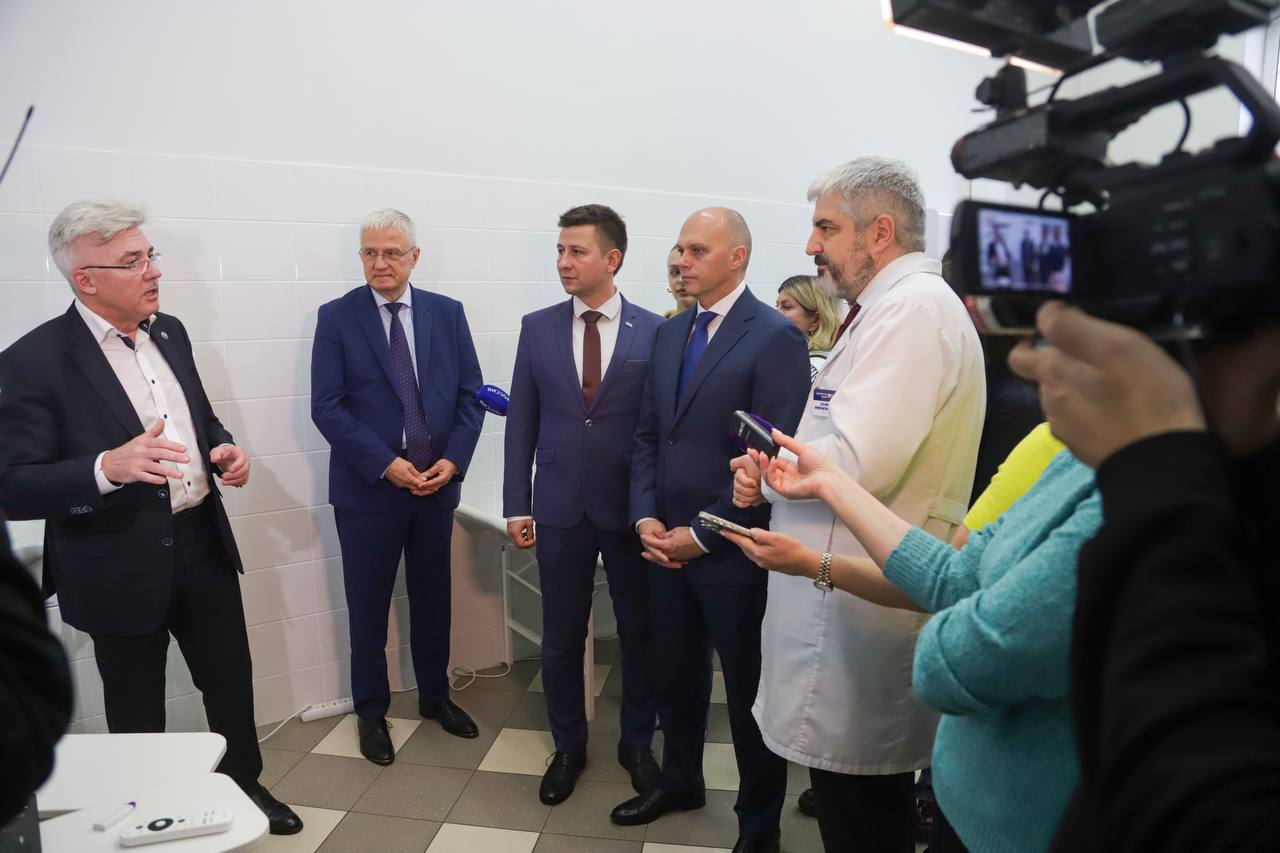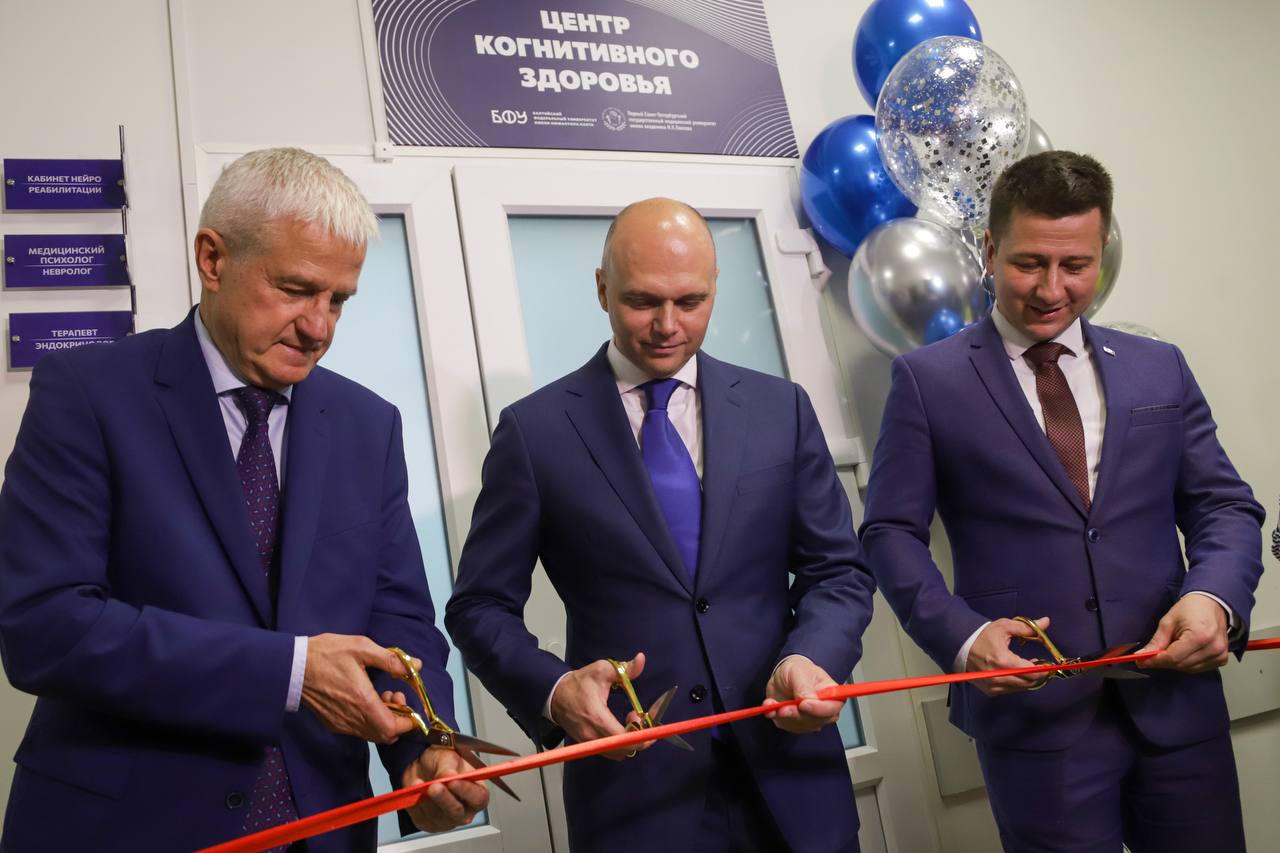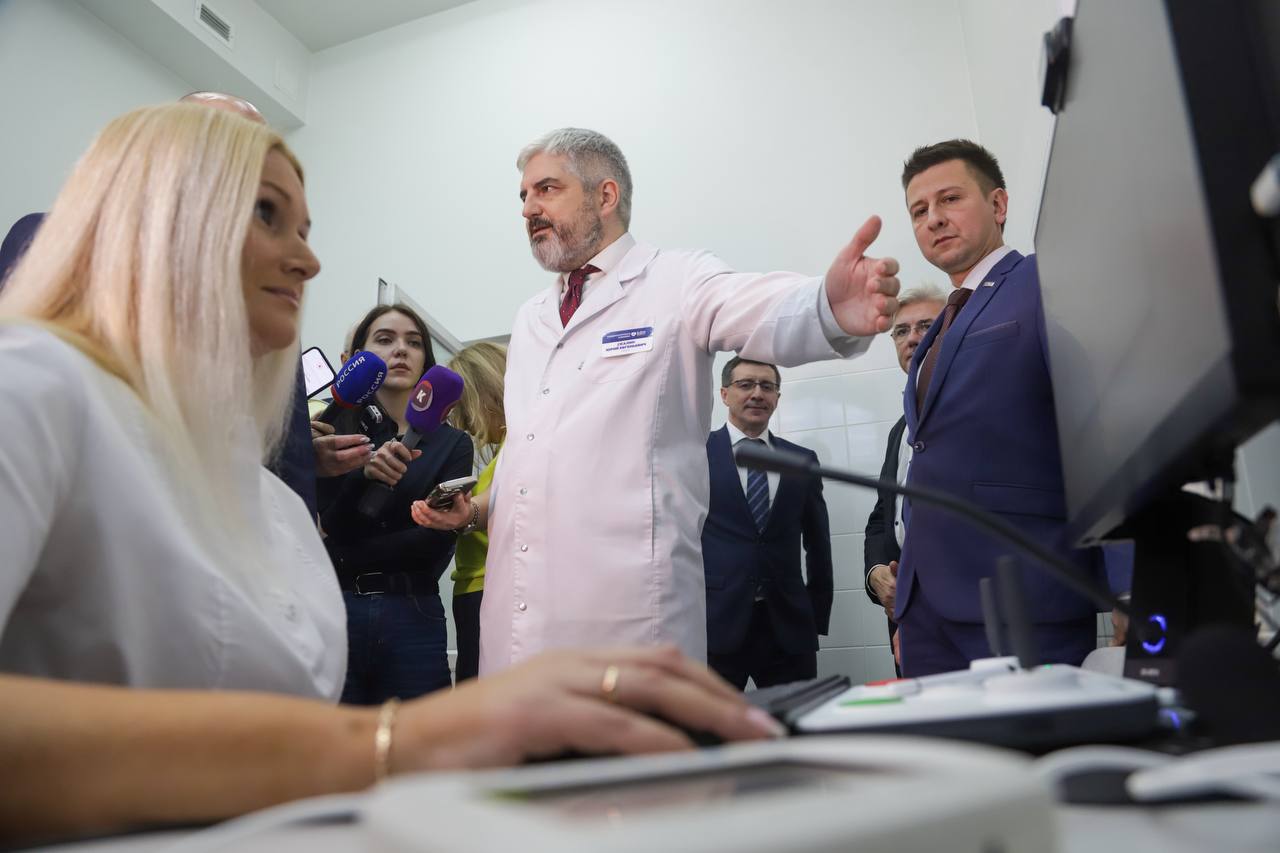
On October 28, the Cognitive Health (Neurorehabilitation) Center was officially opened at the University Clinic of Immanuel Kant Baltic Federal University (IKBFU). Residents of the Kaliningrad region will now have access to a comprehensive diagnostic and treatment program for cognitive disorders, utilizing artificial intelligence technologies, VR tools, and cognitive training programs—some developed by researchers at the Baltic Center for Neurotechnology and Artificial Intelligence.
The Cognitive Health Center was established in partnership with the First Pavlov State Medical University of St. Petersburg as part of the federal Priority 2030 program, with the support of the Ministry of Health of the Kaliningrad Region. Consultations are provided by leading experts from Kaliningrad, Moscow, and St. Petersburg, including a general practitioner, endocrinologist, medical psychologist, neurologist, and functional diagnostics specialist.

| At the opening ceremony, Alexey Besprozvannykh, Governor of the Kaliningrad Region, said: |
| I appreciate IKBFU for it’s significant contribution to regional healthcare. Almost all graduates of the 2025 class of the Higher School of Medicine have chosen to stay and work in the Kaliningrad region. The opening of this new technological center is another strong reason to stay in Kaliningrad and build a career as a highly qualified specialist. The Neurorehabilitation Center carries an important mission—to improve the quality of life for patients with cognitive impairments. This center is a direct result of our work under the Priority 2030 program. We recently presented our projects in Moscow, and the region received strong scientific support. It is especially valuable that doctors here will apply artificial intelligence technologies and local scientific developments—this is about technological leadership. |
| Medical technologies can not be developed in isolation—collaboration between practicing physicians and researchers from different fields is essential. Pavlov University initiated such cooperation and provided a vast data base. In turn, IKBFU, a university with strong expertise in neurotechnology and artificial intelligence, contributed it’s instrumental base and software development competencies. This approach has effectively erased the boundaries between fundamental research and clinical practice. I am confident that the Cognitive Health Center will become a focal point of excellence in neuroscience—a place that attracts patients, doctors, and scientists alike. We will not only treat symptoms but also build a long-term system for maintaining cognitive health, |
| told Rector. |
 According to Sergey Bagnenko, Rector of Pavlov First State Medical University of St. Petersburg, the key mission of the new center is the prevention and rehabilitation of patients with neurodegenerative diseases, Alzheimer’s disease, and other cognitive disorders.
According to Sergey Bagnenko, Rector of Pavlov First State Medical University of St. Petersburg, the key mission of the new center is the prevention and rehabilitation of patients with neurodegenerative diseases, Alzheimer’s disease, and other cognitive disorders. | This is the first neurorehabilitation center in Russia with such advanced technological equipment. The technologies and rehabilitation framework applied here will help patients with cognitive impairments to reintegrate socially and regain self-care abilities. This is a crucial goal for modern healthcare. I am confident that similar centers will soon open in Moscow, St. Petersburg, and other major Russian cities, |
| noted Sergey Bagnenko. |
| Sergey Dmitriev, Minister of Health of the Kaliningrad Region: |
| The Kaliningrad region is the first in Russia to open such a center. It is a unique space where science and practical medicine meet. This year, over a hundred patients with cognitive impairments from the region, currently treated at the University Clinic and the Regional Clinical Hospital, will benefit from the Center’s services. Starting in 2026, patients will be able to book appointments through a neurologist referral under the national health insurance program. |
| Thanks to the Center, doctors will be able to assess a patient’s condition and develop an individualized training program to restore specific cognitive functions. It is important to teach patients to adapt and effectively use their remaining abilities. Diagnostics will include IKBFU-developed tools such as the Cognitive Impairment Risk Meter and the hardware-software complex Neurodoppler. The Center is also equipped with a transcranial magnetic stimulator for brain function assessment and devices for arterial function analysis., |
| Igor Voznyuk explained. |
| Each patient’s rehabilitation program will be tailored individually. Treatment methods will include VR technologies, transcranial magnetic stimulation (TMS), cognitive training, psychological therapy, and medication. Upon completion, patients will receive recommendations for maintaining cognitive health at home, with follow-up evaluations to monitor progress, |
| Yury Skalin added. |
User profile for student
User profile for student
I give consent to the processing of the personal data provided, with Personal Data Processing Policy acquainted
Confirm consent